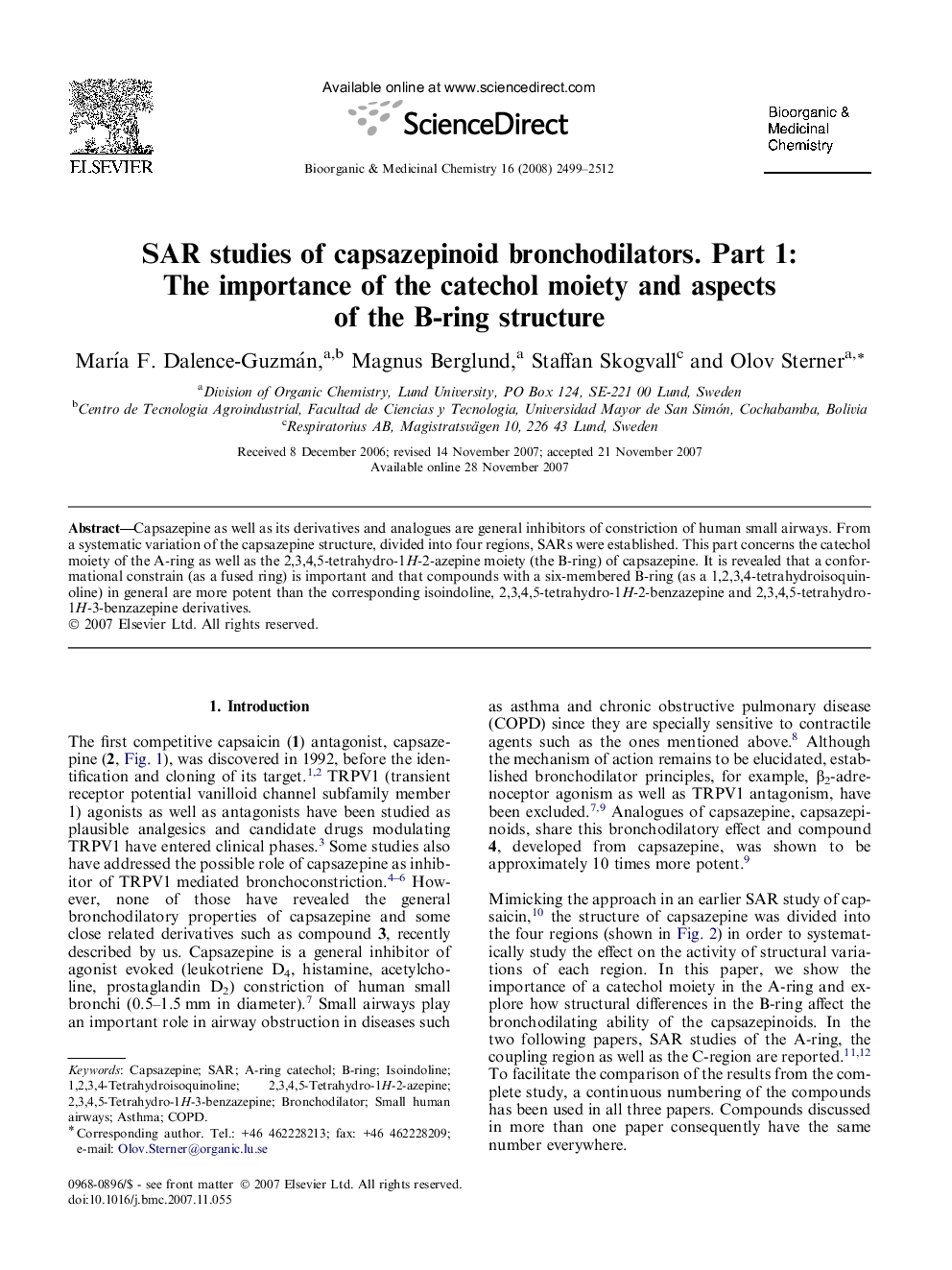| Article ID | Journal | Published Year | Pages | File Type |
|---|---|---|---|---|
| 1361451 | Bioorganic & Medicinal Chemistry | 2008 | 14 Pages |
Capsazepine as well as its derivatives and analogues are general inhibitors of constriction of human small airways. From a systematic variation of the capsazepine structure, divided into four regions, SARs were established. This part concerns the catechol moiety of the A-ring as well as the 2,3,4,5-tetrahydro-1H-2-azepine moiety (the B-ring) of capsazepine. It is revealed that a conformational constrain (as a fused ring) is important and that compounds with a six-membered B-ring (as a 1,2,3,4-tetrahydroisoquinoline) in general are more potent than the corresponding isoindoline, 2,3,4,5-tetrahydro-1H-2-benzazepine and 2,3,4,5-tetrahydro-1H-3-benzazepine derivatives.
Graphical abstractA series of capsazepinoids with different number/position of hydroxyl groups in the A-ring and B-ring size/substitution were prepared, and assayed for bronchorelaxing activity in human small airway preparations.Figure optionsDownload full-size imageDownload as PowerPoint slide
